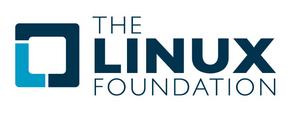DUBLIN, IRELAND — (Marketwired) — 10/05/15 — LinuxCon Europe and Embedded Linux Conference Europe , the nonprofit organization dedicated to accelerating the growth of Linux and collaborative development, today announced the new Real-Time Linux (RTL) Collaborative Project. RTL will bring together industry leaders and experts to advance and maximize technologies for the robotics, telecom, manufacturing, aviation and medical industries, among others.
The RTL kernel supports the largest range of architectures of any operating system and can leverage Linux device drivers, file systems and more from the mainline kernel. Real-time properties make it possible to control robots, data acquisition systems, manufacturing plants and other time-sensitive instruments and machines from RTL applications. It provides the critical infrastructure for some of the world–s most complex computing systems.
Google is a founding Platinum member of this work. Gold members include National Instruments, OSADL and Texas Instruments; and silver members include Altera, ARM, Intel and IBM. RTL–s Thomas Gleixner, who has been maintaining the RTL branch for more than a decade, will become a Linux Foundation Fellow to dedicate even more time to his work on RTL. He joins other Linux Foundation Fellows, including Linux kernel stable maintainer, Greg Kroah-Hartman, embedded Linux developer and Yocto Project maintainer, Richard Purdie, and Linux creator, Linus Torvalds. Gold member OSADL has been actively involved in supporting Gleixner–s work.
“The work we–ve been doing on Real-Time Linux has been critical in advancing complex real-time computing systems. But technology is moving fast, and the RTL project, with support from across the industry, will allow us to sustain this work and successfully integrate with the mainline kernel for long-term support of these technologies,” said Thomas Gleixner, Linux kernel developer and Linux Foundation Fellow.
“Code that is built and maintained collaboratively is better and less expensive than software that is not,” said Jim Zemlin, executive director at The Linux Foundation. “By coming together to advance Real-Time Linux as a community, products and systems will be supported by the best developers in the world for years to come.”
The RTL Collaborative Project will focus on pushing critical code upstream to be reviewed and eventually merged into the mainline Linux kernel where it will receive ongoing support. This will save the industry millions of dollars in research and development. It will also improve quality of the code through robust upstream kernel test infrastructure, since anything maintained in the mainline kernel is collectively supported by thousands of developers and hundreds of companies around the world. The Project will conduct a quarterly code plan review, meet face-to-face at least twice a year at Embedded Linux Conference and contribute to testing and documentation of the project.
For more information about the RTL Collaborative Project, please visit:
Member Comments
Altera
“Contributing upstream to the Linux kernel is a critical element of Altera–s open source strategy,” says Vicki Mitchell, Director of Software Engineering, Heterogeneous Programming Group. “Upstreaming Preempt RT into the mainline kernel provides significant benefits including support for a broader range of applications.” Altera–s contribution to kernel code ensures Linux developers can work on Altera–s architectures, SoCFPGA and NiiosII. Altera–s contributions don–t stop there, however,” said Mitchell. “The ability to collaborate with like-minded developers, customers and partners within the Linux community in a synergistic manner ensures the longevity of Linux and is paramount to Altera and its customers– success in the marketplace.”
ARM
“We see ARM technology being deployed in an increasing range of applications, such as networking infrastructure, where Linux is a core technology,” said Charlene Marini, vice president, segment marketing, ARM. “The Real-Time Linux Collaborative Project will enable the ARM ecosystem to further optimize their products with increased confidence in the long-term support from upstream Linux kernel.”
Intel
“As a leading contributor to Linux, Intel is excited to be a part of the Real-Time Linux project and participate in the long-term success of the project. Linux–s prevalence as an operating system for embedded platforms and new devices will help applications with real-time requirements, giving us confidence in its long-term support,” said Mark Sharpness, director of Embedded Software, Open Source Technology Center at Intel Corporation.
National Instruments
“By collaborating with The Linux Foundation through the Real-Time Linux Collaborative Project, we are able to make an informed investment to ensure the continued success of an open source project which will enhance future generations of our devices,” said Omid Sojoodi, Vice President of R&D for Application and Embedded Software at National Instruments. “Having this patchset upstream will make Linux a first-class RTOS out of the box.”
OSADL
“We–ve been supporting Real-Time Linux for a long time and look forward to transferring our funding activities to the newly founded Linux Foundation RTL project. In addition to funding Real-Time Linux, we will continue to help the industry deploy it in products through training, quality assurance, safety processes and legal support,” said Carsten Emde, General Manager, OSADL.
Texas Instruments
“Thomas Gleixner–s work on Real-time Linux has been an integral part of our customers– development process, and with TI–s commitment to RTL, we–re thrilled to see what advancements will come now that he can dedicate more time to further improving and integrating it with the mainline kernel,” Jon Humphreys, Linux Core Product Development Director, Texas Instruments.
The Linux Foundation is a nonprofit consortium dedicated to fostering the growth of Linux and collaborative software development. Founded in 2000, the organization sponsors the work of Linux creator Linus Torvalds and promotes, protects and advances the Linux operating system and collaborative software development by marshaling the resources of its members and the open source community. The Linux Foundation provides a neutral forum for collaboration and education by hosting Collaborative Projects, Linux conferences, including LinuxCon, and generating original research and content that advances the understanding of Linux and collaborative software development. More information can be found at .
The Linux Foundation and Linux Standard Base are trademarks of The Linux Foundation. Linux is a trademark of Linus Torvalds.
Media Contact
Jennifer Cloer
The Linux Foundation
503-867-2304


You must be logged in to post a comment Login